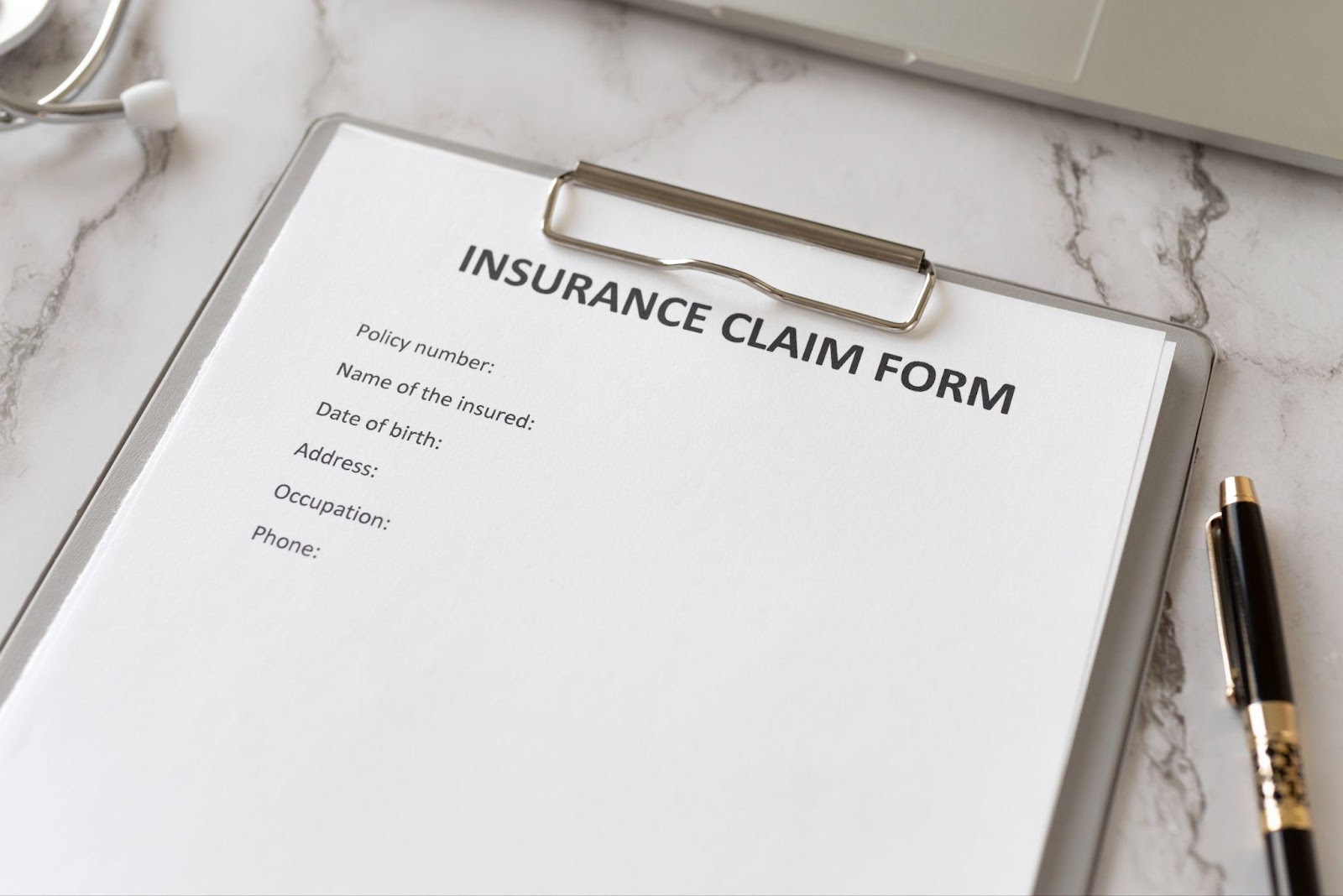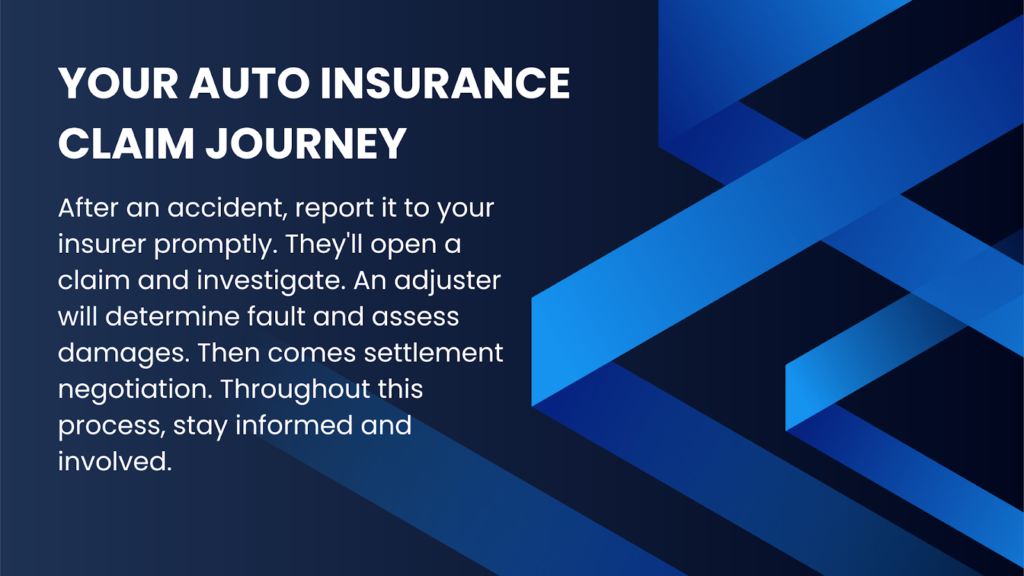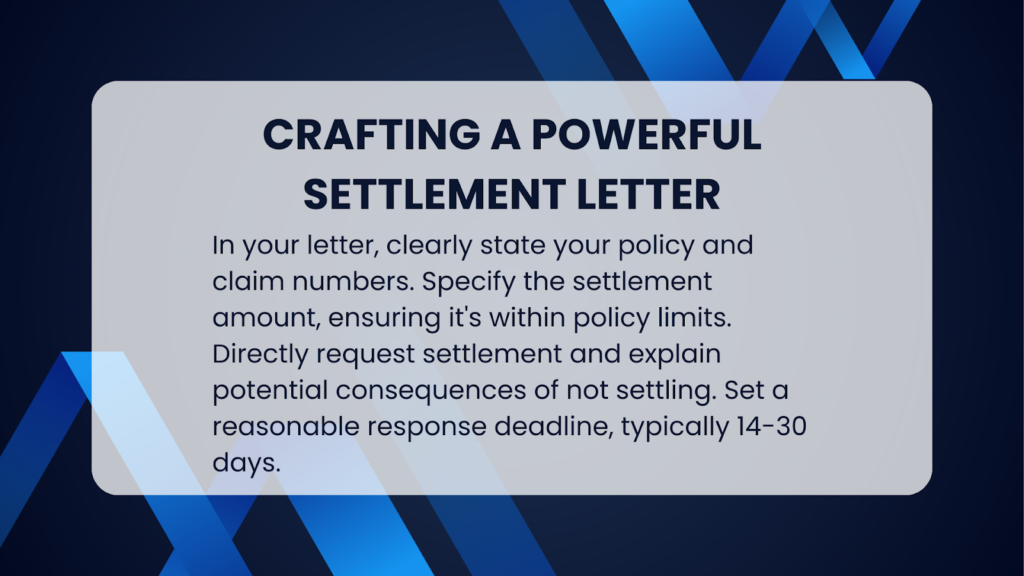
Did you know that in 2022, there were over 6 million police-reported car crashes in the United States?
If you’ve found yourself in the unfortunate position of being the at-fault driver in an accident, you’re not alone.
Understanding how to communicate effectively with your insurance company is crucial for protecting your interests and ensuring a fair resolution.
Being involved in a car accident is stressful enough, but when you’re the at-fault driver, the complexities can multiply.
Here, our Alabama car accident attorneys will walk you through the process of communicating with your insurance company, with a focus on how to advocate for yourself while ensuring that claims are settled fairly and within policy limits.
Understanding Your Insurance Policy
Before diving into communication strategies, it’s essential to have a clear understanding of your insurance policy.
Key Components of Your Policy
- Liability coverage;
- Policy limits;
- Deductibles; and
- Additional coverages (e.g., collision, comprehensive).
Understanding these elements will help you navigate conversations with your insurer more effectively.
Reviewing Your Policy
Take the time to carefully read through your policy. If there are terms or sections you don’t understand, don’t hesitate to ask your insurance agent for clarification.
Immediate Steps After an Accident
Your actions immediately following an accident can significantly impact the claims process.
At the Scene
- Ensure everyone’s safety;
- Call the police;
- Exchange information with other involved parties; and
- Document the scene (photos, witness statements).
Reporting the Accident
Notify your insurance company as soon as possible. Most policies require prompt reporting of accidents.
The Claims Process Overview
Understanding the general flow of the claims process can help you navigate it more effectively.
- Accident reported;
- Claim opened;
- Investigation conducted;
- Liability determined;
- Damages assessed;
- Settlement negotiated; and
- Claim resolved.
By understanding each step of the claims process, you’ll be better equipped to navigate it effectively and ensure your rights are protected throughout.

Communicating with Your Insurance Company
Effective communication is key to ensuring your interests are protected throughout the claims process.
Initial Contact
When you first report the accident:
- Stick to the facts;
- Avoid admitting fault (even if you believe you were at fault); and
- Provide all necessary information requested.
During the Investigation
As your insurer investigates the claim:
- Respond promptly to all requests for information;
- Keep detailed records of all communications; and
- Ask for clarification if anything is unclear.
Understanding the Concept of “Good Faith”
Insurance companies have a legal obligation to act in “good faith.” This means they must:
- Conduct a thorough and timely investigation;
- Attempt to settle claims fairly; and
- Defend you against lawsuits if necessary.
Recognizing these obligations can help you hold your insurer accountable and ensure you receive fair treatment throughout the claims process.
When Demands Are Made Within Policy Limits
If the other party makes a demand within your policy limits, it’s crucial to understand your rights and your insurer’s responsibilities.
The Importance of Policy Limits
Your policy limits represent the maximum amount your insurance company will pay for a claim. When demands fall within these limits, it’s generally in everyone’s best interest to settle quickly.
Insurer’s Duty to Settle
Your insurance company has a duty to settle claims within policy limits when it’s reasonable to do so. Failing to do so could expose you to personal liability if a judgment exceeds your policy limits.
Writing an Effective Letter to Your Insurance Company
Sometimes, you may need to formally communicate your desire for the insurance company to settle a claim within policy limits. This is sometimes referred to as a “hammer letter.”

Key Elements of the Letter
Before you start drafting, it’s important to understand the crucial components that make your communication clear and effective. Here are the key elements to include:
- Your policy number and claim number;
- A clear statement of the demand amount and confirmation it’s within policy limits;
- A request for the insurer to settle the claim;
- An explanation of potential consequences if the claim isn’t settled; and
- A reasonable deadline for response.
Sample Letter Template
[Your Name]
[Your Address]
[City, State ZIP Code]
[Date]
[Insurance Company Name]
[Insurance Company Address]
[City, State ZIP Code]
Re: Policy Number [Your Policy Number], Claim Number [Your Claim Number]
Dear [Insurance Representative’s Name],
I am writing regarding the above-referenced claim arising from an accident on [date of accident]. I have been informed that [claimant’s name] has made a demand for settlement within my policy limits of [your policy limit amount].
I hereby request that you settle this claim within my policy limits. As you are aware, failure to settle a claim within policy limits when there is an opportunity to do so could potentially expose me to personal liability for any judgment in excess of my policy limits.
I trust that you will act in good faith and in my best interests by settling this claim promptly. Please inform me in writing of your actions regarding this matter within [number of days, e.g., 14 days] of receipt of this letter.
Thank you for your prompt attention to this matter.
Sincerely,
[Your Signature]
[Your Printed Name]
After Sending the Letter
Keep a copy of the letter for your records and follow up if you don’t receive a response within the specified timeframe.
Negotiating a Fair Settlement
While your insurance company will handle most of the negotiation, staying informed and involved can help ensure a fair outcome.
Understanding Settlement Offers
- Review all settlement offers carefully;
- Ask your insurer to explain the rationale behind offers; and
- Understand the potential consequences of rejecting an offer.
Pushing for a Fair Resolution
If you believe your insurer isn’t acting in your best interests:
- Communicate your concerns in writing;
- Request a detailed explanation of their decision-making process; and
- Consider seeking legal advice if necessary.
Remember, persistence and clear communication are key in ensuring your rights are protected, and your claim is handled fairly.
When to Seek Legal Counsel
While many claims can be resolved without legal intervention, there are times when consulting an attorney may be beneficial.
Signs You May Need Legal Help
- Your insurer is refusing to settle within policy limits;
- The other party has filed a lawsuit;
- You’re being asked to pay out of pocket; and
- You suspect bad faith practices by your insurer.
Choosing an Attorney
Look for an attorney with experience in insurance law and a track record of successfully representing policyholders.
Protecting Yourself from Excess Liability
Even with insurance, there’s always a risk of being held liable for damages exceeding your policy limits.
Umbrella Insurance
Consider purchasing umbrella insurance for additional liability protection beyond your auto policy limits.
Asset Protection Strategies
Consult with a financial advisor about strategies to protect your assets in case of a judgment exceeding your insurance coverage.
Frequently Asked Questions
Navigating insurance claims after an accident can be complex, but you’re not alone in your concerns.
Here are answers to some of the most common questions we receive from at-fault drivers.
Can My Insurance Company Refuse to Settle a Claim Within Policy Limits?
While they can refuse, doing so without a valid reason could be considered bad faith, potentially exposing them to additional liability.
What If the Demand Exceeds My Policy Limits?
Your insurer is only obligated to pay up to your policy limits. You may be personally responsible for any amount exceeding those limits.
Can I Be Sued Personally Even If I Have Insurance?
Yes, but in most cases, your insurance company will provide a defense and cover damages up to your policy limits.
What Constitutes “Bad Faith” by an Insurance Company?
Examples include unreasonably delaying claim processing, failing to properly investigate a claim, or refusing to settle within policy limits when it’s reasonable to do so.
Should I Admit Fault to My Insurance Company?
When reporting an accident, it’s best to stick to the facts. Let your insurance company determine fault based on their investigation.
Protect Your Rights and Secure Your Future
Navigating the aftermath of an accident as an at-fault driver can be challenging, but understanding your rights and responsibilities can make the process smoother.
If you find yourself struggling with the complexities of insurance claims or feel that your rights aren’t being respected, don’t hesitate to seek professional legal advice.
An experienced attorney can provide invaluable guidance and ensure that your interests are protected throughout the claims process.
Contact us today for a free consultation and let us put our expertise to work for you. Remember, the actions you take now can significantly impact the outcome of your claim. Don’t wait: Reach out to Baxley Maniscalco and take the first step towards peace of mind.
Can't find what you're looking for? Search our site below.










